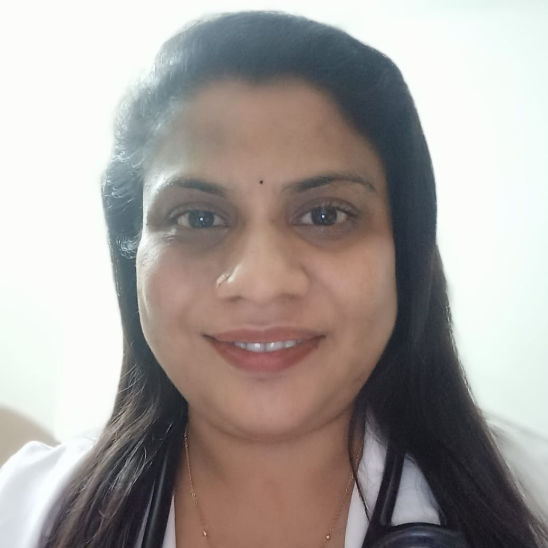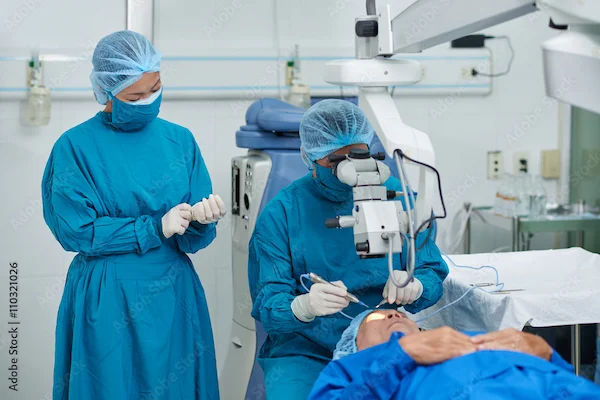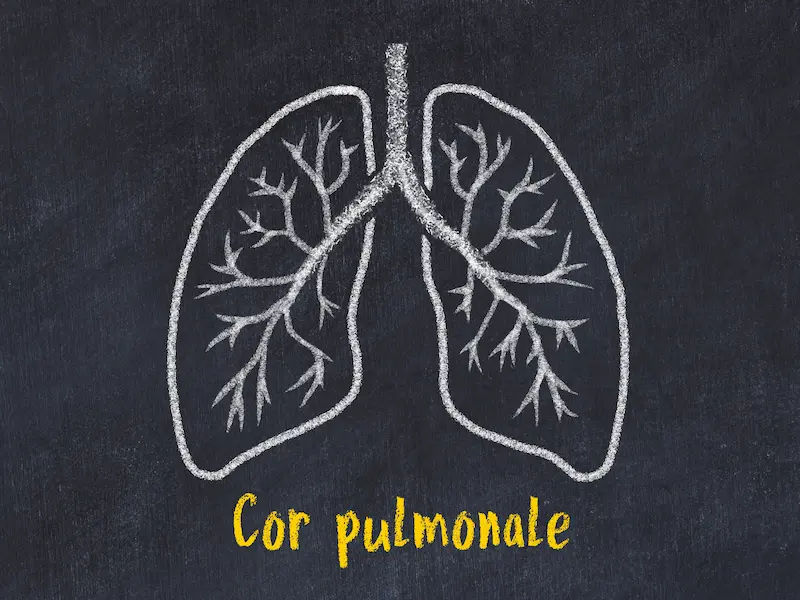Symptoms and Causes of Dehydration
Learn about the symptoms and causes of dehydration. Understand how fluid loss affects the body and ways to recognize and prevent dehydration early.

Written by Dr. J T Hema Pratima
Reviewed by Dr. Shaik Abdul Kalam MD (Physician)
Last updated on 13th Jan, 2026

Introduction
Dehydration is a common but often overlooked health issue that occurs when your body loses more fluids than it takes in. Without enough water, your body struggles to perform essential functions, leading to discomfort and, in severe cases, serious health complications.
This article will help you understand the symptoms and causes of dehydration, along with simple ways to prevent and manage it.
What is Dehydration?
Dehydration happens when your body doesn’t have enough water and electrolytes (such as sodium and potassium) to function properly. Water is crucial for digestion, circulation, temperature regulation, and waste removal. When you lose too much fluid through sweating, urination, vomiting, or diarrhoea, your body can’t work as it should.
Mild dehydration can often be fixed by drinking more fluids, but severe dehydration may require medical attention.
Consult a General Physician for the best advice
Common Symptoms of Dehydration
Dehydration can affect people differently, but here are some key signs to watch for:
Early Signs (Mild Dehydration)
- Increased thirst – Your body’s first signal that you need water.
- Dry mouth and lips – A sticky or parched feeling.
- Dark yellow urine – Healthy urine is light yellow; darker urine suggests dehydration.
- Fatigue or dizziness – Feeling unusually tired or lightheaded.
- Headache – A dull or throbbing pain due to lack of fluids.
- Reduced urination – Going to the bathroom less often than usual.
Moderate to Severe Symptoms
- Extreme thirst – A constant, unquenchable need for water.
- Sunken eyes – Eyes appear hollow or dark.
- Dry, cool skin – Skin loses elasticity and may feel clammy.
- Rapid heartbeat or breathing – The body struggles to maintain normal functions.
- Confusion or irritability – Difficulty concentrating or unusual mood changes.
- Fainting or severe weakness – In extreme cases, dehydration can lead to loss of consciousness.
Note: Infants, young children, and older adults are at higher risk of severe dehydration. Look for signs like no tears when crying (in babies), sunken soft spot on the head (in infants), or extreme sleepiness (in elderly people).
What Causes Dehydration?
Dehydration doesn’t just happen because you forget to drink water; many factors can contribute to fluid loss.
1. Not Drinking Enough Water
- Skipping water due to a busy schedule.
- Not feeling thirsty (common in older adults).
- Relying on sugary or caffeinated drinks (which can increase fluid loss).
2. Excessive Sweating
- Hot weather or intense physical activity.
- Fever (which increases body temperature and sweating).
3. Illness (Vomiting & Diarrhoea)
- Stomach infections (like food poisoning or viral gastroenteritis).
- Chronic digestive conditions (such as IBS or Crohn’s disease).
4. Frequent Urination
- Uncontrolled diabetes (high blood sugar leads to excess urination).
- Diuretic medications (water pills for blood pressure).
- Alcohol consumption (alcohol is a diuretic, increasing urine output).
5. Other Medical Conditions
- Burns or severe skin injuries (fluid loss through damaged skin).
- Kidney disease (affects fluid balance).
How to Prevent and Manage Dehydration
The good news is that dehydration is often preventable with simple habits:
1. Drink Enough Water Daily
- General rule: Drink at least 8 glasses (2 litres) of water per day, more if active or in hot climates.
- Check urine color: Aim for pale yellow.
2. Eat Hydrating Foods
- Fruits like watermelon, oranges, and cucumbers have high water content.
- Soups, yogurt, and smoothies also help maintain hydration.
3. Replenish Electrolytes
- After heavy sweating or illness, drink oral rehydration solutions (ORS), coconut water, or sports drinks (in moderation).
4. Avoid Excessive Alcohol & Caffeine
- Both can increase fluid loss; balance them with extra water.
5. Be Extra Careful When Sick
- If vomiting or diarrhoea, take small sips of water or ORS frequently.
6. Protect Yourself in Hot Weather
- Wear light clothing, stay in the shade, and drink water before feeling thirsty.
When to See a Doctor?
Most cases of dehydration can be treated at home, but seek medical help if you or a loved one experiences:
- No urination for 8+ hours
- Extreme dizziness or confusion
- Rapid heartbeat or breathing
- Sunken eyes (in babies)
- Blood in vomit or stool
Severe dehydration may require IV fluids in a hospital.
Final Thoughts
Dehydration is preventable with awareness and small daily habits. Listen to your body; thirst is an early warning sign. Keep water handy, eat hydrating foods, and take extra care during illness or hot weather.
Consult a General Physician for the best advice
Consult a General Physician for the best advice

Dr. Hariprasath J
General Physician/ Internal Medicine Specialist
19 Years • MD (Gen Med), FCCP, Dip (Diabetology, UK)
Chennai
Apollo First Med Hospitals P H Road, Chennai
(225+ Patients)

Dr. Bhaskar S
General Physician/ Internal Medicine Specialist
25 Years • MD (INT MED), FRCP, FACP
Chennai
Apollo Hospitals Greams Road, Chennai
(500+ Patients)

Dr. Pinaki Mukhopadhyay
General Physician/ Internal Medicine Specialist
32 Years • MBBS
Kolkata
MCR SUPER SPECIALITY POLY CLINIC & PATHOLOGY, Kolkata
(25+ Patients)

Dr. Swaroopa Rani
General Physician/ Internal Medicine Specialist
9 Years • MBBS, MD (Internal Medicine)
Bengaluru
Apollo Medical Center, Marathahalli, Bengaluru

Dr. Tamal Bhattacharyya
Pulmonology Respiratory Medicine Specialist
8 Years • MBBS, MD (Respiratory Medicine)
Kolkata
MCR SUPER SPECIALITY POLY CLINIC & PATHOLOGY, Kolkata
Consult a General Physician for the best advice

Dr. Hariprasath J
General Physician/ Internal Medicine Specialist
19 Years • MD (Gen Med), FCCP, Dip (Diabetology, UK)
Chennai
Apollo First Med Hospitals P H Road, Chennai
(225+ Patients)

Dr. Bhaskar S
General Physician/ Internal Medicine Specialist
25 Years • MD (INT MED), FRCP, FACP
Chennai
Apollo Hospitals Greams Road, Chennai
(500+ Patients)

Dr. Pinaki Mukhopadhyay
General Physician/ Internal Medicine Specialist
32 Years • MBBS
Kolkata
MCR SUPER SPECIALITY POLY CLINIC & PATHOLOGY, Kolkata
(25+ Patients)

Dr. Swaroopa Rani
General Physician/ Internal Medicine Specialist
9 Years • MBBS, MD (Internal Medicine)
Bengaluru
Apollo Medical Center, Marathahalli, Bengaluru

Dr. Tamal Bhattacharyya
Pulmonology Respiratory Medicine Specialist
8 Years • MBBS, MD (Respiratory Medicine)
Kolkata
MCR SUPER SPECIALITY POLY CLINIC & PATHOLOGY, Kolkata


.webp)
 Ayurvedic Benefits, Uses, and Side Effects.webp)
